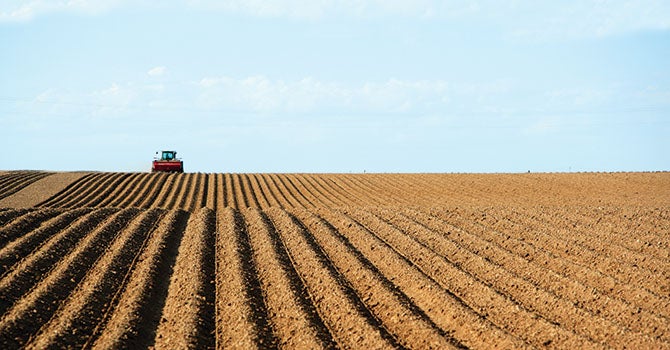Authors: SFSI Faculty Affiliate Andrew Jones
Published October 21, 2019 by the School of Public Health’s Findings magazine
The health of our global food systems hangs in the balance of a changing climate. At the same time, these food networks also release a significant amount of carbon dioxide into the atmosphere, exacerbating our climate crisis.
Current climate trends place unprecedented pressures on global food systems. Warming temperatures threaten crop yields by reducing soil moisture and the uptake of nutrients by plants. The resulting deficiencies alter rates of plant development, which can reduce critical growth periods and increase susceptibility to pests and disease. Climate-related loss of biodiversity and declines in the nutrient content of certain grains and legumes under elevated CO2 concentrations in the atmosphere are concerns for maintaining a diverse food supply. Warmer water is also associated with declines in the productivity of fisheries around the globe.
Meanwhile, these vulnerable food systems themselves are responsible for more than one-quarter of the greenhouse gas emissions generated by humans worldwide.



